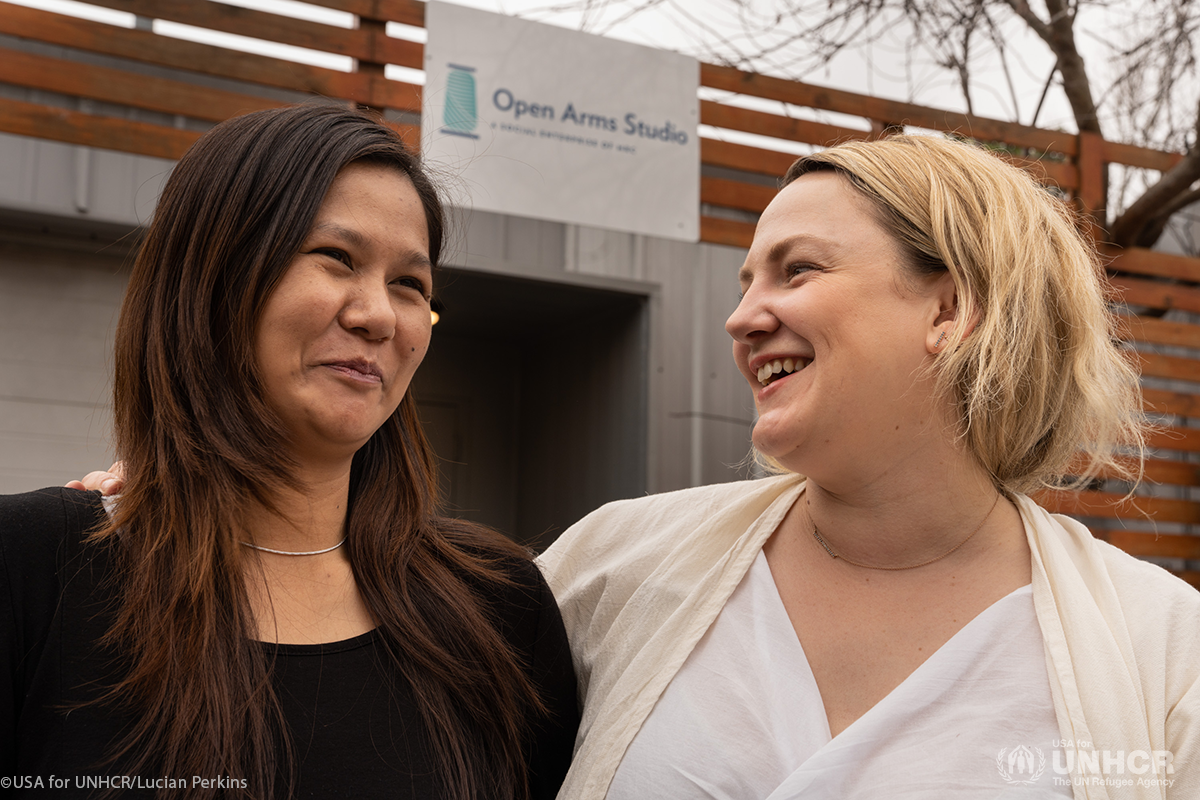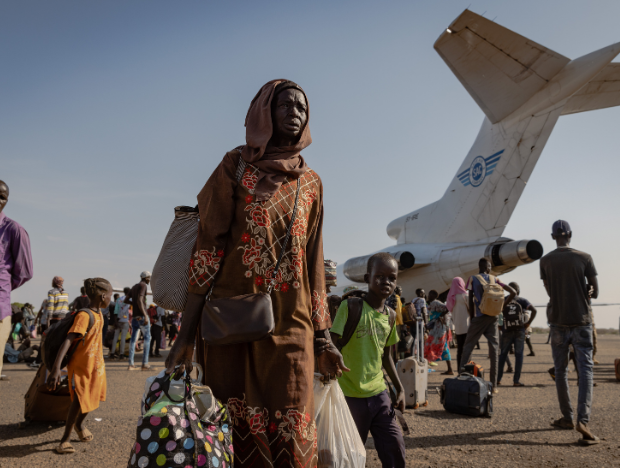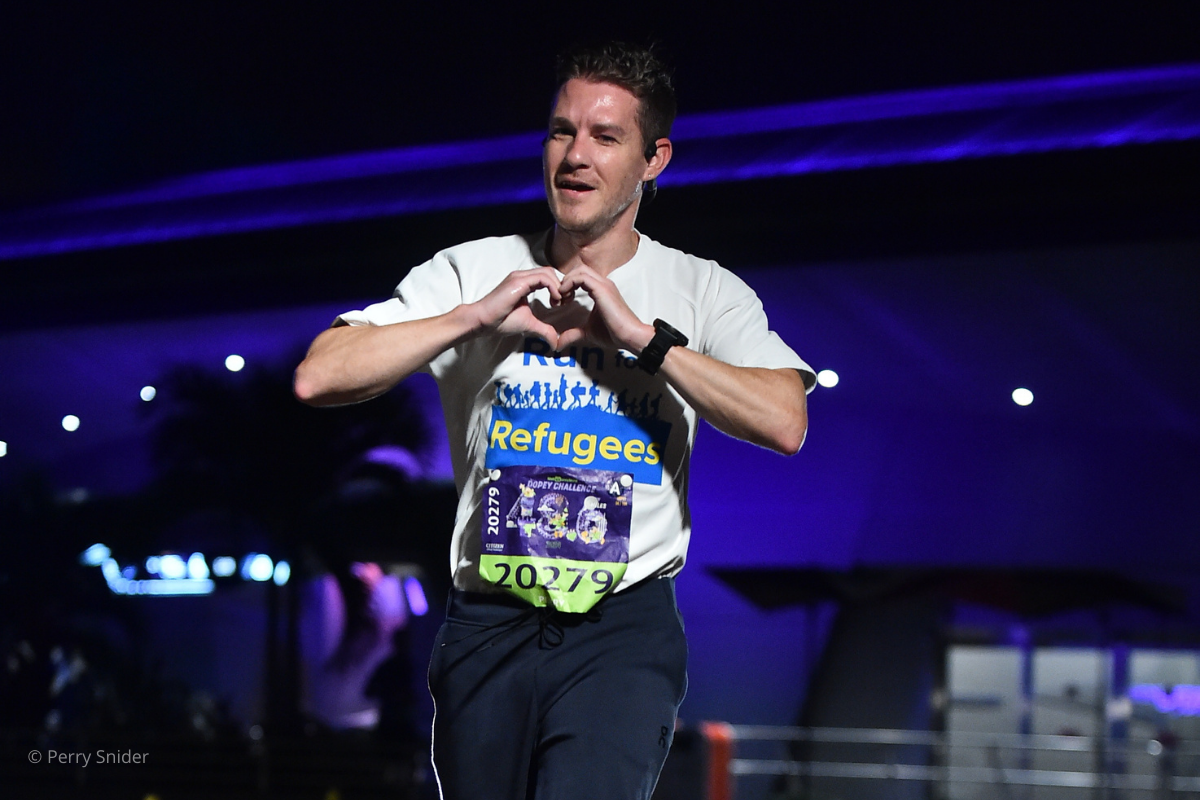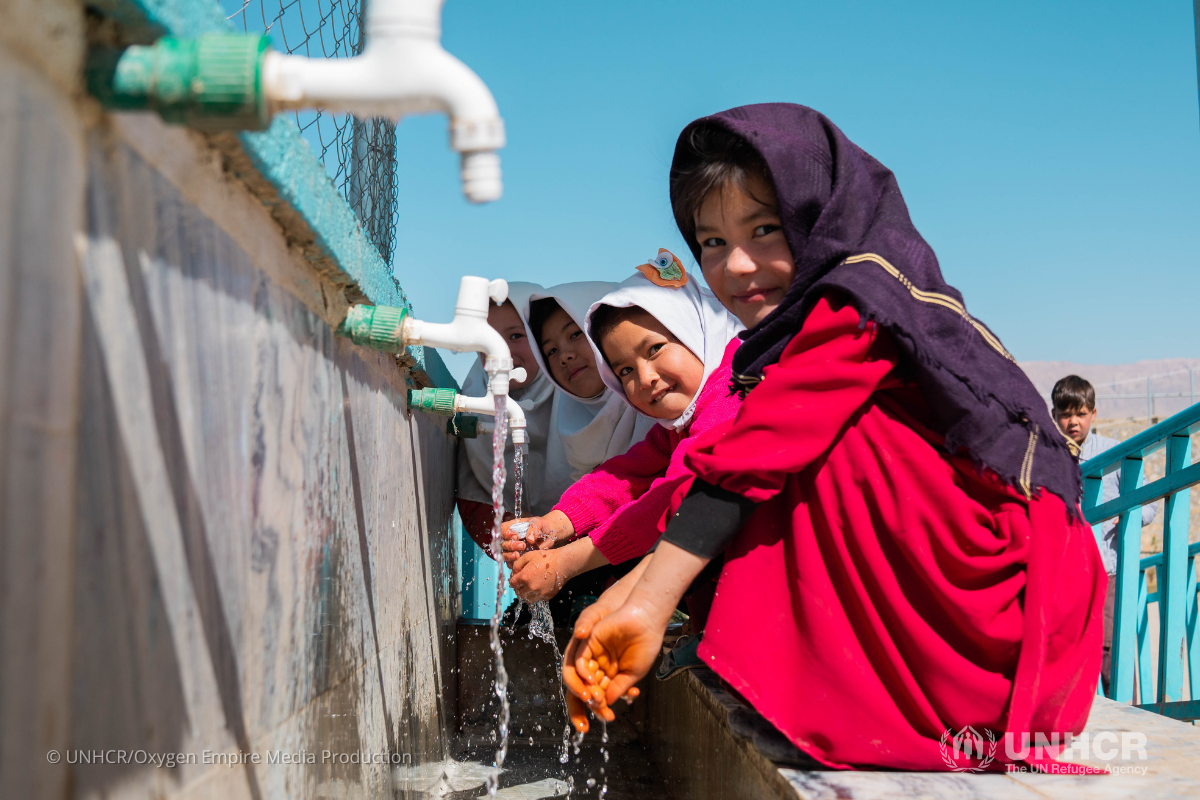Austin, Texas based clothing line gives refugees a chance to thrive
Miranda Bennett is the founder and owner of Miranda Bennett Studio, an ethical women's apparel brand based in Austin, TX. All apparel is made with plant-dyes with natural pigments and cut, processed, and shipped from its Austin, Texas studio. Miranda Bennett Studio pays fair wages across its supply chain and has a history of providing meaningful work opportunities for newly resettled refugees.
USA for UNHCR Communications Manager Nicholas Feeney sat down with Miranda Bennett to talk about her business and her work with refugees.
Prior to launching Miranda Bennett Studio, you were working in the clothing industry in New York City. What brought you back home to Austin? What were you hoping to achieve?
I wanted to get back to what had drawn me to clothing and apparel and fashion in the first place. It was the process of having my hands engaged in the making of the clothing. When I moved back here, I began to learn about plant dyes and it’s a really exciting and very process-driven medium. The opportunity for the colors that we can create with plant dyes is limitless. It also allows us to create partnerships with our sourcing that can maximize the benefit of how we're achieving color within our collection.
How did the mission of Miranda Bennett Studio develop? What has inspired you to start this particular business?
I think a designer's greatest tool is empathy. Empathy is understanding another person's experience. That means how they feel wearing the clothing that we produce: Is it comfortable? Do they feel good? Do they feel themselves? Do they feel supported? It really is about considering that every decision you make has a repercussion and that repercussion can be positive or negative.
How important was it to you to keep your sourcing and manufacturing local to the Austin community?
The common thread for me since moving back to Austin was always keeping a local supply chain. How can we maintain the unique nature of our plant dyes and a manufacturing partnership that allows us to regularly create goods year-round as we're dying those fabrics.
As you started to scale up your apparel line in Austin, how did you come to work with resettled refugee women?
I discovered the Multicultural Refugee Coalition of Austin (MRC), specifically Open Arms, their manufacturing social enterprise, and I was blown away that that was present in Austin and that they were positioned to cater to a commercial client. MRC was created in response to what skillsets refugees are coming to the U.S. with, as well as what interest they have in where they want to create their livelihoods.

Can you tell me about working with Maria? She’s a former refugee originally from Myanmar.
I first met Maria at MRC a few years ago. What I have really been struck by with Maria is seeing her go from an apprentice-level position with the company to now being in a managerial role. Her confidence and competency have really grown within her role but she’s also helping others on the Open Arms teams to get their bearings, to understand more about the process of production and manufacturing. She's really became a bridge-builder between our team and the team at Open Arms.
How has your understanding of the refugee resettlement process changed after working with refugees and MRC?
My understanding of what the resettlement process was prior to working with Maria and MRC was limited. I didn't really have a sense of the nuts and bolts of what the process of becoming resettled was, the amount of time that that takes, the amount of commitment, and the fact that that is often happening from a refugee camp with a family that's displaced from not only their community but all of the anchor points of their regular life.
What surprised you most about what you’ve learned about the resettlement process?
Refugees have a very short amount of initial government support (as little as 90 days in some states) when they arrive. In that time, they need to learn the bus or public transportation system, set up a place to live and begin improving their language skills. When you think of all of those barriers it is really not a lot of time. That an organization like MRC is offering more support for all of the shifts that refugees experience and getting them to a place where they can truly be self-sufficient, which is their greatest hope, just blew me away.
What do you wish more Americans knew about refugees and their experience?
I think what I would love for Americans to understand about refugees is that just to be here, standing on U.S. soil, is somewhat of a miracle and is not something that came easily. They're humans, they're people. They're people that have been through and seen things that we wouldn't wish on our greatest enemy.
How can you help...
USA for UNHCR, the UN Refugee Agency supports the full journey of refugees like Maria and communities like Austin that are welcoming refugees and helping them make new homes. Not only do our donors help refugees in their greatest time of need, but their support builds awareness for resettled refugees living in the U.S. With your help, more refugees will have the opportunity to build a peaceful life and give their family a bright future.


